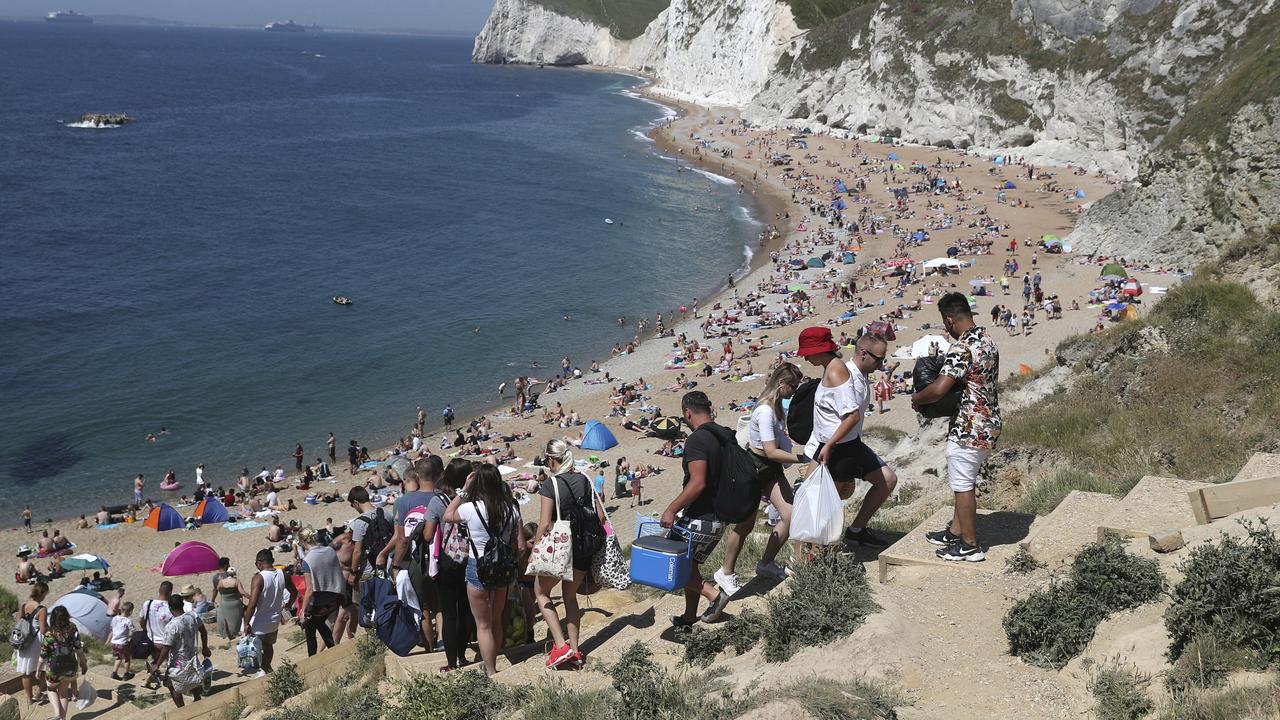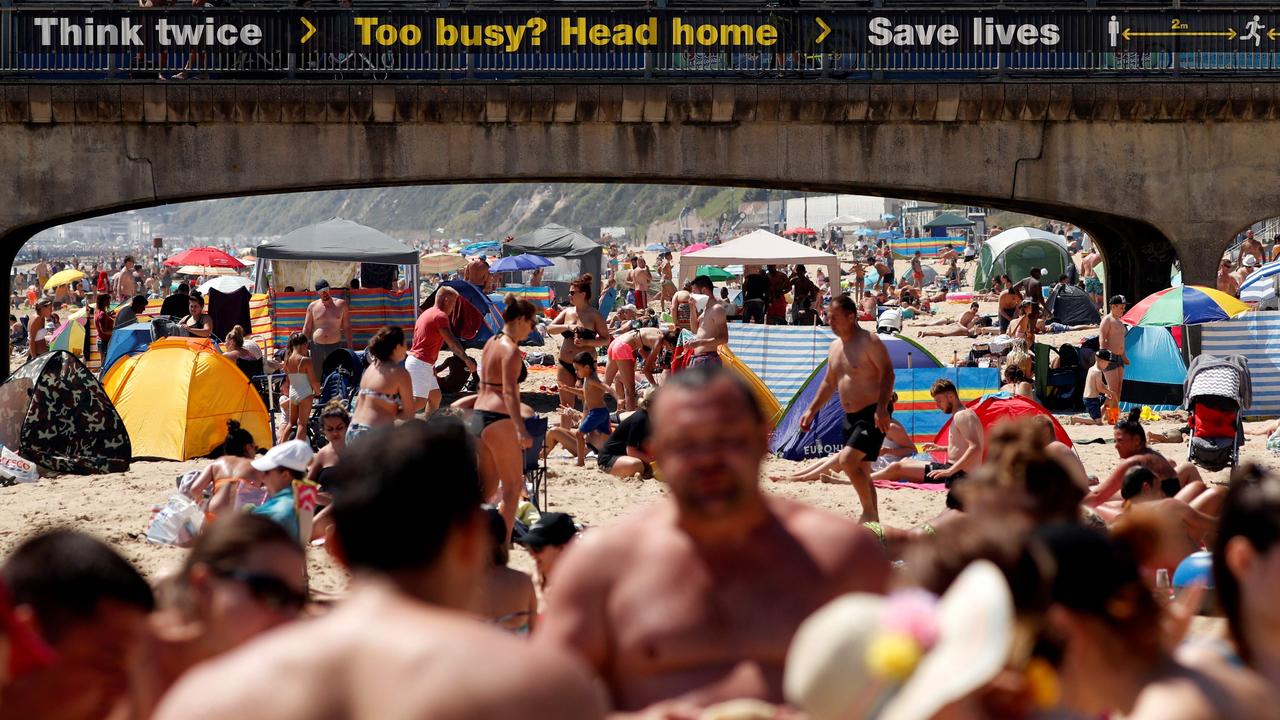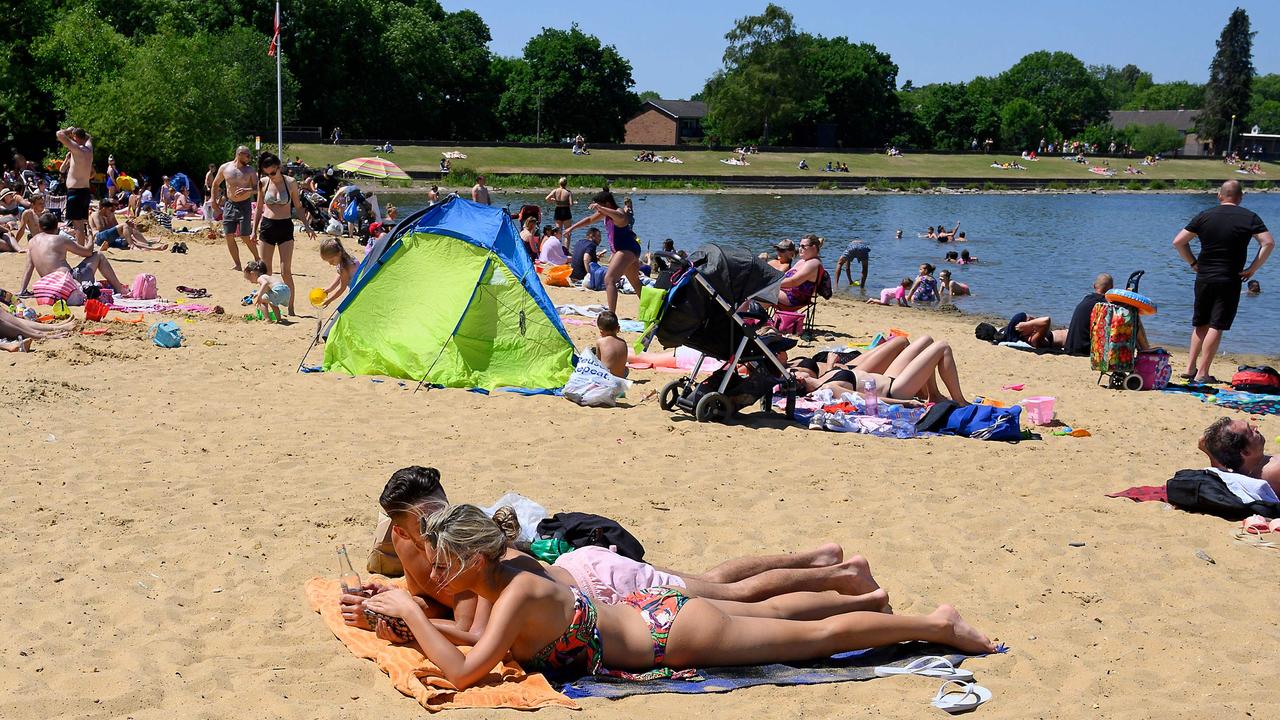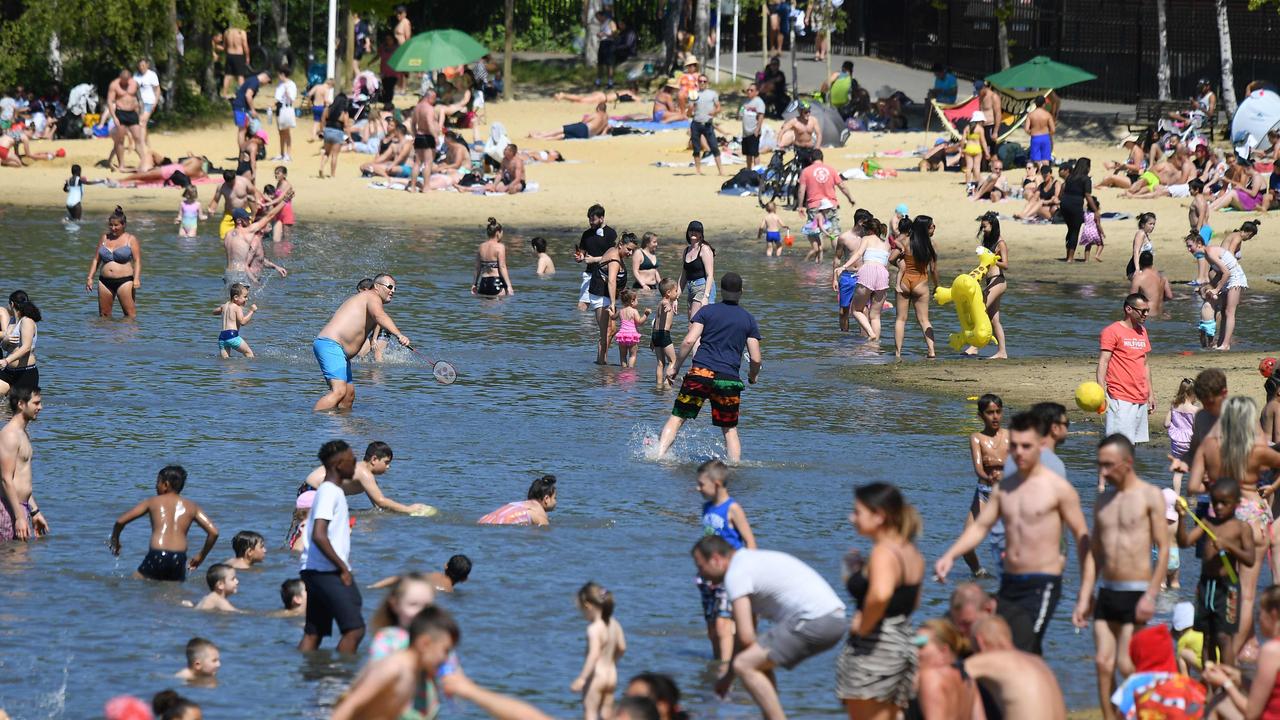Coronavirus: United Kingdom easing restrictions ‘too quickly’, health officials warn
Shocking photos from the UK’s beaches over the weekend have reinforced health experts’ warnings that it’s easing restrictions too fast.
Health officials in the United Kingdom have told Prime Minister Boris Johnson he is lifting the country’s coronavirus restrictions too quickly and risking a new spike in infections.
Britain has recorded 275,00 coronavirus cases, and its death toll of 38,000 is the second-worst in the world, behind only the United States.
Nevertheless, Mr Johnson’s Government is currently moving to relax the lockdown it put in place 10 weeks ago.
From Monday local time, up to six people will be able to meet outside in England, some school classes will restart, elite competitive sport will resume and more than two million vulnerable people who have been “shielding” themselves from the virus will be allowed to spend time outdoors.
Some scientists are worried that the Government is easing restrictions before establishing a fully functioning system to track new outbreaks.
Their fears were further fuelled over the weekend when photos emerged of Brits flouting social distancing rules at beaches across the country.
RELATED: Follow all the latest coronavirus news


In an extraordinary public intervention today, the President of the Association of Directors of Public Health (ADPH) said doctors were “increasingly concerned that the government is misjudging this balancing act and lifting too many restrictions too quickly”.
“Over the weekend we have seen signs that the public is no longer keeping as strictly to social distancing as it was,” Dr de Gruchy said.
“Along with this, we are concerned that the resolve on personal hygiene measures, and the need to immediately self-isolate if symptomatic, is waning.
“A second peak cannot be ruled out. Whether it will overwhelm the NHS (National Health Service) is an important question to ask. But perhaps the even bigger one is, do we really want the same number of deaths again? The scale to date represents an unimaginable tragedy and we must do everything possible to limit further loss of life.”
She said the Government’s decision to start relaxing restrictions was “not supported by the science”.
“Let’s be clear. The NHS test and trace program is currently far from being the robust operation that is now urgently required as a safeguard to easing restrictions,” Dr de Gruchy said.
“The ADPH is calling for full implementation of all phase two measures to be delayed until further consideration of the ongoing trends in infection rates and the R level gives more confidence about what the impact of these will be.
“The risk of a spike in cases and deaths – and of the social and economic impact if we have to return to stricter lockdown measures – cannot be overstated. This needs to be understood not only by the public but also by the government.”
Other health experts have backed up Dr de Gruchy’s warning.
“I think it’s risky for a couple of reasons,” Professor John Edmunds, a member of Britain’s Scientific Advisory Group for Emergencies (SAGE), told Sky News.
“We still have a lot of cases here in this country. The number of infections that we have is about 8000 new infections every day in England alone.”
“COVID-19 is spreading too fast to lift lockdown in England,” said Sir Jeremy Farrar, another SAGE adviser.
Covid-19 spreading too fast to lift lockdown in England. Agree with John & clear science advice. TTI has to be in place, fully working, capable dealing any surge immediately, locally responsive, rapid results & infection rates have to be lower. And trusted https://t.co/ZmYKs4Go3W
— Jeremy Farrar (@JeremyFarrar) May 29, 2020


The government has defended its decision. At its most recent coronavirus briefing, Communities Secretary Robert Jenrick said he was “reasonably confident” the level of risk associated with easing restrictions was acceptable.
“We are confident that this is the right step to be taking at this moment in time,” Foreign Secretary Dominic Raab added in an interview with Sky News.
“We are taking those steps very carefully, based on the science, but also based on our ability now to monitor the virus.”
And England’s deputy chief medical officer Jenny Harries urged the public to keep practising social distancing.
“This is a really, really critical time. So where we are seeing government is easing measures, the public really, really need to stick to those measures,” she said.
With wires




